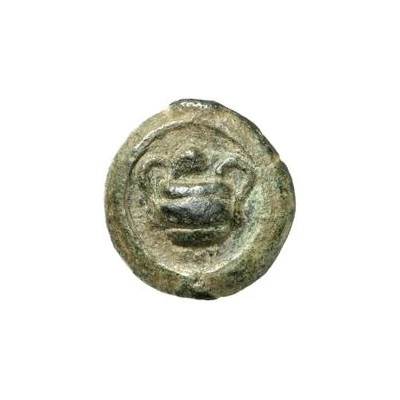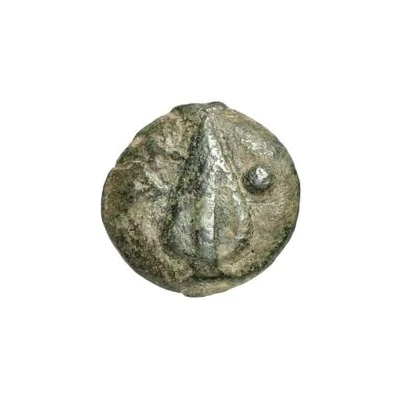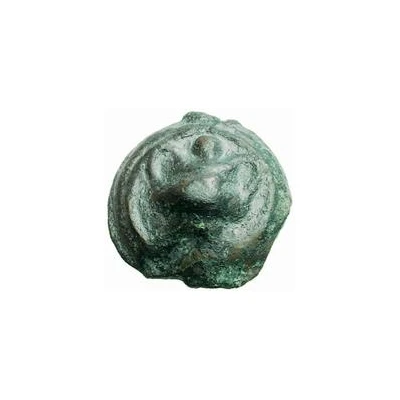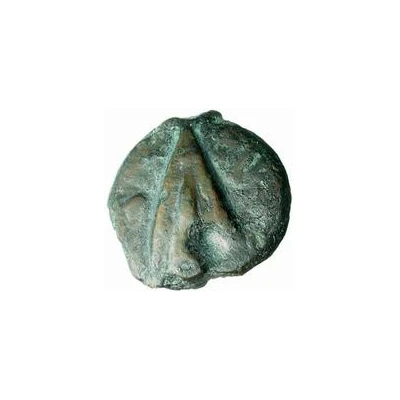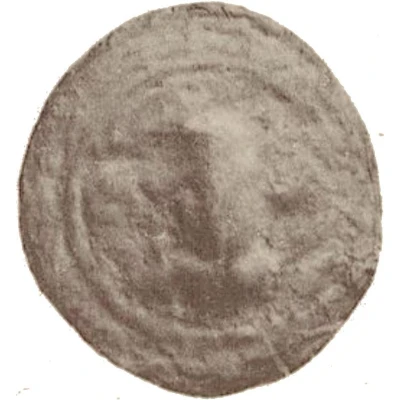
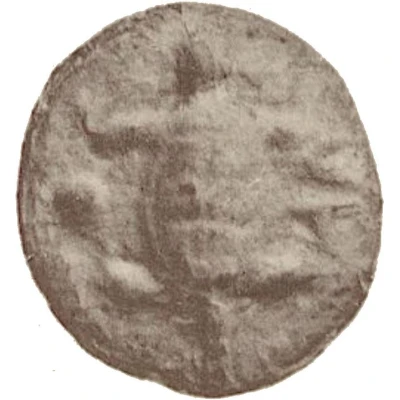

© Ernst Haeberlin; 1910. "Aes Grave". Joseph Baer, Frankfurt, Germany (CC0)
1 Uncia Heavy type 280 BC - 240 BC
| Bronze | 17.15 g | 28 mm |
| Issuer | Tuder (Umbria) |
|---|---|
| Type | Standard circulation coin |
| Years | 280 BC - 240 BC |
| Value | 1 Uncia = 1⁄12 As |
| Currency | As (circa 280-201 BC) |
| Composition | Bronze |
| Weight | 17.15 g |
| Diameter | 28 mm |
| Shape | Round (irregular) |
| Technique | Cast |
| Demonetized | Yes |
| Updated | 2024-10-10 |
| Numista | N#182667 |
|---|---|
| Rarity index | 100% |
Reverse
Tortoise with one dot to the left and legend to the right.
Lettering: TU
Translation: Tuder
Edge
Plain
Interesting fact
The 1 Uncia coin from Tuder (Umbria) was used as a form of currency in ancient Italy, specifically in the region of Umbria, during the 3rd century BC. It was made of bronze and weighed 17.15 grams, which was a significant weight for a coin at that time. The coin's design featured the image of a bull on one side and the letters "TUDER" on the other, indicating its origin from the city of Tuder. Despite its age, some of these coins have been well-preserved and can still be found in collections or museums today, offering a glimpse into the economic and cultural practices of ancient civilizations.
